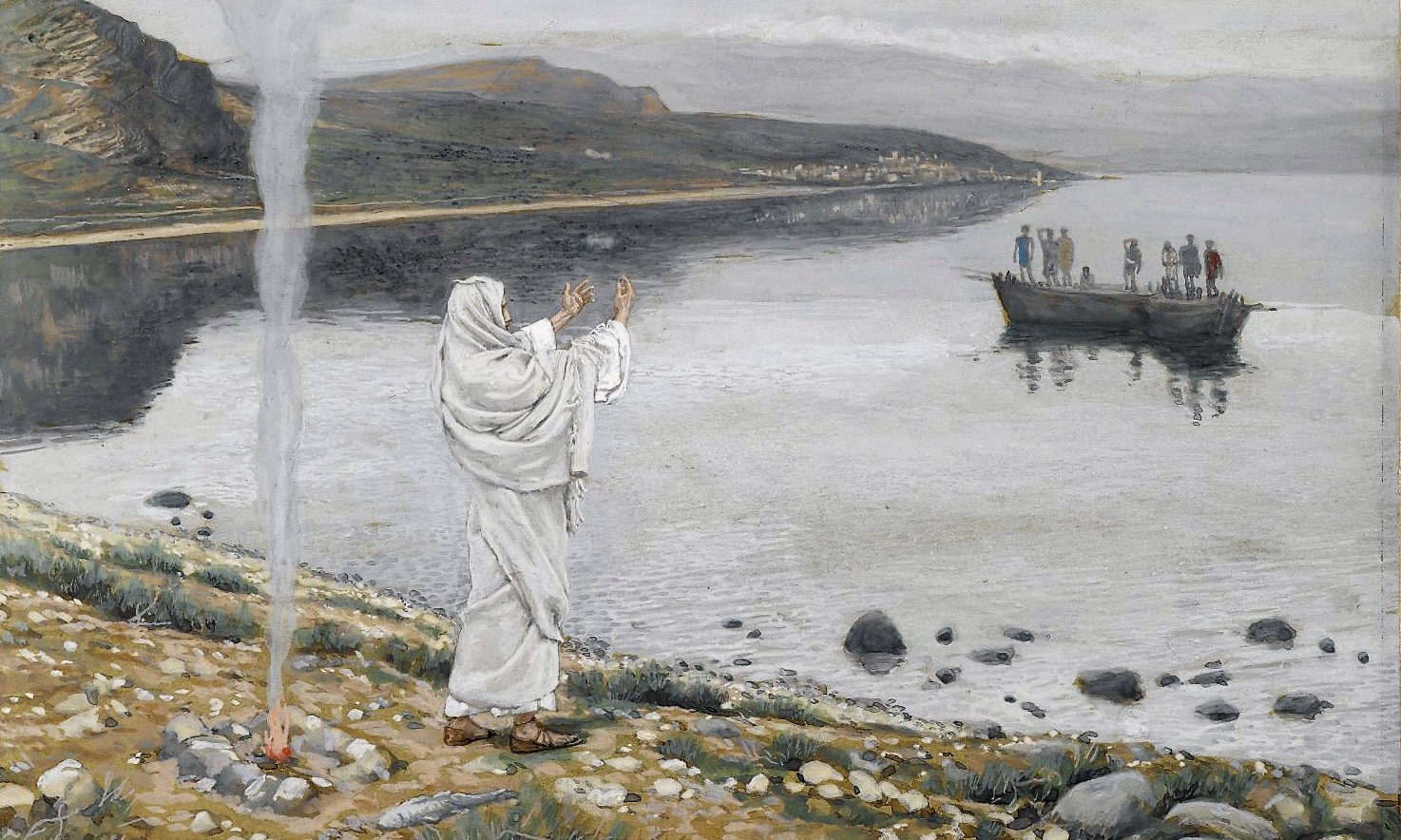Sermon for the Third Sunday of Easter
‘They gave him a broiled fish, and he took it and ate it before them.’
+INJ+
The Son of Man has risen from the dead, and has proven Himself before the unbelieving world to be the Son of God.
Peter looks toward the people, those who knew not what they had done, and spoke to them, saying: ‘Men of Israel, why do you wonder at this, or why do you stare at us? The God of Abraham and of Isaac and of Jacob, the God of our fathers, glorified his servant Jesus, whom you delivered over and denied in the presence of Pilate, when he had decided to release him. But you denied the Holy and Righteous One, and asked for a murderer to be granted to you, and you killed the Author of Life.’
For we, not long ago, called for His death. We demanded His crucifixion, and pleaded for the release of one called Barabbas, whose name, translated, means ‘Son of the Father.’ We demanded that the false son live, that the true Son might be slaughtered.
We are a wicked people, but can we be surprised by our own wickedness? For it is always the false, but promising, that we beg for; and never the true and promised. We cast aside the promised One, the one foretold by the mouth of the prophets, in many and various ways, for He seems but a son of man. We expected something more. Something more than the Holy and Righteous One; more than the Lord of Glory. For we are a wicked people, and we are not surprised even at our own wickedness. We always want more; and for this reason we are called an adulterous generation.
These are the promises of Christianity: mockery, suffering, injustice, condemnation, and if we are most blessed, martyrdom. For Christianity promises to the Christian nothing more than what God promised to the Christ, and these things He endured, and endured before the people, the rulers, even the Church, the Men of Israel.
This is the baptism by
which he was baptized, and the cup of
which he must drink. These are the promises born within the Sacraments that
our Lord endured during His Passion. For with sacrificial fire was He baptized,
and sacrificial blood did He drink; and not only His own, but the blood of the
world, for all have sinned, and
therefore the blood of all is required.
Then He offered up His body. Upon a cross He raised it up, that His baptism and
His blood might be united to His body; that His suffering might be made
complete, and offered whole and perfect
to the Lord. That it might be accepted by the Father in heaven; that it
might be given to this wasteland of sinful men. For all sacrifices are both
offered to God, and eaten by the people.
He was raised up upon the tree, that He might be consumed, body and soul, by
you, the fallen, that you false sons of man, might become true sons of God.
For there is more, even as St. Peter preaches: ‘Now, brothers, I know that you acted in ignorance, as did your rulers.
But what God foretold, that his Christ would suffer, he thus fulfilled. Repent,
therefore, and turn back, that your sins by be blotted out, and that he may
send the Christ appointed for you, Jesus, whom heaven must receive until the
time for the restoration of all things about which God spoke by the mouth of
his holy prophets long ago.’
For these are the promises of Christianity: glory, resurrection, justification,
and if we be but the Lord’s little children, that he suffers to come unto him, the eternal vision of the unending
beauty of God. For Christianity promises to the Christian nothing more than
what God promised to the Christ, and these things He received, and received
before the people, the rulers, even the Church, even to us, the men of Israel.
[Beloved, we are God’s children now.]
There is a baptism by which we are
baptized, of water and the spirit,
and a cup of which we must drink. And
these promises are born within the Sacraments that our Lord gives us in our
Passion, in the midst of our sufferings. For with a flood of purifying water
are we baptized out of death and into endless day. By the blood of the Son do
we drink; that even as He drank the draught of God’s wrath; we might drink of
the cup of God’s joy.
And all this joined with the body, which we every week consume, that by His
flesh, our flesh might be made immortal; that dying a death like his, we may have a resurrection like his.
By receiving and consuming the baptism of water, and the body and blood of
Christ, we receive Christ into ourselves, into our very flesh and blood and
being.
Now let us be received into His very flesh and blood and being.
He asks his friends a simple question: ‘Have
you anything here to eat?’
‘They gave him a piece of broiled fish.’
A fish, creature of the waters, made of flesh, purified by the spirit of fire.
This they gave him. They gave Him a Christian. That He who is in us, might be in him. That the cycle of the Sacrament may be fulfilled; that we
may forever be united to the Lord of
Glory. That our nature might finally be made complete.
‘And he took it and ate it before them.’
+INJ+
Preached
by Pastor Fields
Sermon Texts: Acts 3:11-21; 1 John 3:1-7; Luke 24:36-49.



